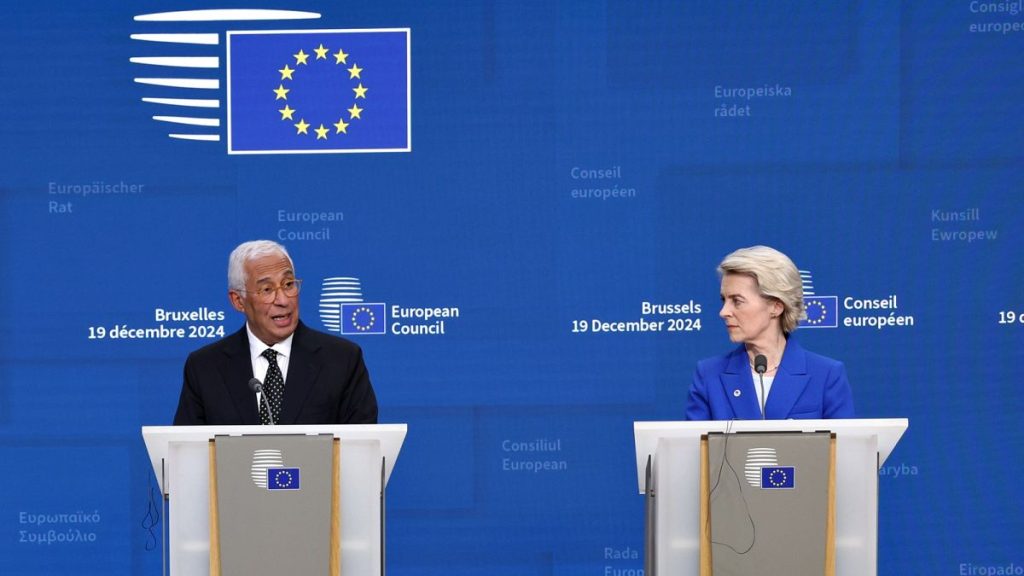The European Union has adopted a cautious yet optimistic approach towards Syria in the wake of Bashar al-Assad’s downfall. While acknowledging the potential for a brighter future for the Syrian people, the EU has emphasized a conditional path towards normalization, contingent upon the actions and commitments of the new leadership, primarily Hayat Tahrir al-Sham (HTS), the rebel group that spearheaded Assad’s overthrow. The EU’s strategy is characterized by a “step-by-step” approach, linking sanctions relief and the revision of HTS’s terrorist designation to tangible progress on the ground, specifically in areas of human rights, inclusivity, and the dismantling of extremist elements. This cautious optimism underscores the EU’s awareness of HTS’s controversial past and the need for demonstrable change before fully embracing the new regime.
The EU has outlined key principles that will guide its re-engagement with Syria. These principles prioritize an inclusive and Syrian-led political process, safeguarding the country’s territorial integrity and national unity. Protection of religious and ethnic minorities, respect for human rights, and the prevention of sectarian violence, extremism, and terrorism are paramount concerns. The EU has also stressed the importance of ensuring the safe, voluntary, and dignified return of Syrian refugees currently residing in Europe, acknowledging the ongoing instability within Syria. This emphasis on human rights and inclusivity represents a clear message to the new leadership that adherence to these values is a prerequisite for normalized relations and access to EU support.
The EU’s engagement with HTS, despite its designation as a terrorist organization, marks a significant shift in policy. This engagement, initiated through a diplomatic mission, reflects a willingness to explore the potential for constructive dialogue and cooperation. However, the EU remains acutely aware of HTS’s past links to al-Qaeda and its record of human rights abuses, including alleged executions for blasphemy and adultery. These concerns have cast a shadow over HTS’s promises of transitioning to a free-market economy, disbanding rebel forces, and fostering an inclusive society. The EU’s cautious approach underscores the need for HTS to demonstrate a genuine commitment to these promises through concrete actions.
The EU’s approach is underpinned by its significant role as Syria’s largest donor, having mobilized over €33 billion since 2011. This financial leverage provides the EU with considerable influence in shaping the transition process. Ursula von der Leyen, President of the European Commission, has indicated a willingness to increase humanitarian and development aid to support Syria’s reconstruction efforts. However, this aid is contingent upon “real deeds” from the new leadership, demonstrating their commitment to the principles outlined by the EU. This conditional approach aims to incentivize positive change and ensure that EU funds are used effectively and transparently.
Despite expressing optimism about a potential brighter future for Syria, the EU has refrained from providing a concrete timeline for sanctions relief or revising HTS’s terrorist designation. This reflects a “wait-and-see” approach, allowing the EU to assess the new leadership’s actions and commitment to reform before making any firm commitments. The EU’s cautious optimism stems from the understanding that the situation in Syria remains volatile and that the true nature of the new regime remains to be seen. The EU’s focus is on ensuring that any transition leads to a genuinely democratic, inclusive, and stable Syria.
The EU’s strategy towards post-Assad Syria represents a delicate balancing act. On the one hand, it recognizes the need to engage with the new leadership and support the Syrian people in rebuilding their country. On the other hand, it remains cautious about HTS’s past and insists on tangible evidence of a genuine commitment to reform before normalizing relations and providing substantial assistance. The EU’s “step-by-step” approach, linking sanctions relief and the revision of HTS’s terrorist designation to demonstrable progress, reflects a pragmatic strategy aimed at maximizing the chances of a successful transition while mitigating the risks of empowering a regime that fails to live up to its promises. The EU’s ultimate goal is to ensure that any transition in Syria leads to a truly democratic, inclusive, and stable future for the Syrian people, a future free from the oppression, violence, and instability that have characterized the past decade.

